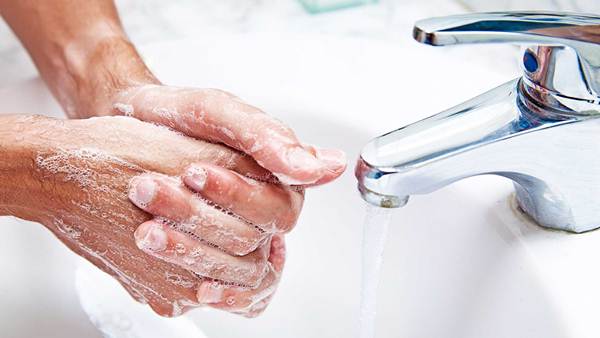There are more than 8,000 salmonella food poisoning cases in England and Wales every year and there are over 2,500 different types of salmonella.
Salmonella is a type of bacteria that causes food poisoning and is commonly found in poultry, eggs, meat and unpasteurised milk. It can also live in animals such as birds and reptiles.
Food poisoning is a highly infectious illness which spreads via person to person contact. Residential and nursing homes, hospitals and nurseries can be particularly vulnerable to outbreaks. Anyone of any age can get salmonella food poisoning but children and elderly people who have a compromised immune system are more likely to develop symptoms of salmonella.
Gill Abbott, senior infection control nurse at our Trust, highlights some of the key symptoms of salmonella: “Nausea, vomiting and diarrhoea are the most common symptoms. Other symptoms include stomach cramps, muscle pain, abdominal pain and loss of appetite.
“Depending on the amount of contaminated food eaten, the length of time for having symptoms of food poisoning will vary. In most cases, symptoms will usually last between four to seven days. Once the symptoms have stopped, you should stay away from work, school or visiting hospital for at least 48 hours to prevent spreading the bacteria to others.
“To help treat food poisoning, it is important you do not become dehydrated. You should drink as much water as possible as you will lose fluid through vomiting and diarrhoea. To help speed up your recovery you should rest and avoid alcohol and caffeine. Eat foods that can easily be digested such as bananas and rice.”
A number of steps can be taken to prevent salmonella infection: “Washing your hands on a regular basis and having good hygiene in the kitchen is essential for preventing food poisoning.
“Cooking food thoroughly will help kill any harmful bacteria present. When you reheat food, make sure it is steaming hot and do not reheat food more than once. Keep cooked food away from raw food to prevent cross-contamination and store ready to eat and raw foods separately. Also remember to wash raw fruit and vegetables before eating.
“Certain foods need to be kept at the correct temperature to prevent harmful bacteria from growing. If food that needs to be chilled is left at room temperature, bacteria can multiply. Cleaning knives and other utensils thoroughly as well as keeping kitchen surfaces clean will help prevent salmonella infection.”
If you suffer from any of the following symptoms: stomach cramps, diarrhoea/vomiting, which may be associated with fever, please remember to discuss/visit your GP in the first instance and not attend a hospital A&E.







